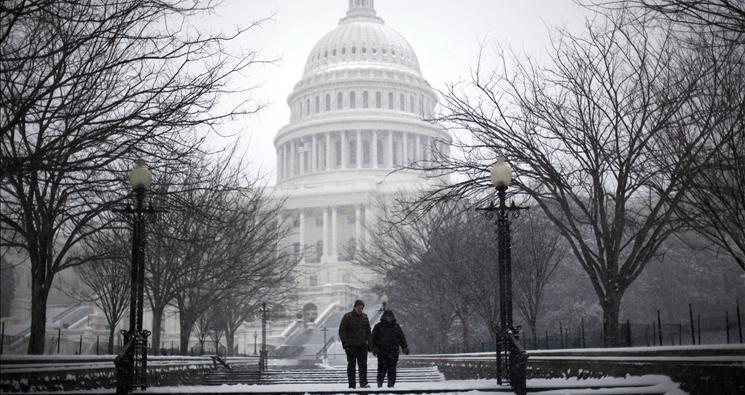Religious Freedom Priority: Congress Reminds India of the Importance of its Religious Plurality
This year, as the people of India prepare to elect a new Prime Minister, the United States House of Representatives is reminding the nation not to forget about its religious minorities.
On November 18, 2013, Congressman Joseph Pitts introduced House Resolution 417, which expresses Congress’ support for India as a religiously diverse nation that values tolerance and equality while urging India to continue defending its many religious minorities.
While many people in the nation of India are firm supporters of the religious freedom provided to them by the secular government, there are some who adhere to extreme strands of Hinduism who are not so compassionate toward religious minorities. The Resolution raises concern for one particular individual currently on the ballot for India’s Prime Minister who it alleges is guilty of despicable acts toward religious minorities and who has a history of atrocious callousness toward the attacks made by Hindu extremists. His name is Narendra Modi.
Elected as Chief Minister of Gujarat state in 2001, Narendra Modi is a self-proclaimed Hindu Nationalist and a member of the Bharatiya Janata Party (BJP). The BJP emerged in 1980 out of the Rashtriya Swayamsevak Sangh (RSS), a political party whose mission is to make India completely into a Hindu State. The BJP defines Indian culture entirely with regard to the Hindu faith and considers non-Hindus to be foreigners of India.
In 2001, the year Modi was elected as Chief Minister of Gujarat state, the BJP party gained a majority in the state assembly and passed one of the strictest anti-conversion laws in India, which made it criminal for a citizen of Gujarat to change religions without permission from a government authority. Modi proudly oversaw the passage of these laws, calling it his constitutional duty to prevent conversions.
A year later, extremists bombed a train, killing dozens of Hindus. Suspecting this was the work of Muslim terrorists, Hindu mobs retaliated in targeted attacks against Gujarat’s Muslim minority members. The riots lasted for nearly four months and ended in the deaths of nearly 2,000 Muslims. Rather than opposing the violence, Chief Minister Modi allegedly ordered the police not to oppose the rioters, but rather to allow the Hindu people to “vent” their anger. Some of the Gujarat law enforcement even led the mobs directly to Muslim homes and businesses while Modi and the BJP-dominated government passively allowed these atrocities to continue. Later, many allege, Modi destroyed evidence of his involvement before the Indian government conducted a special investigation into the violence.
The United States government responded to Modi’s behavior in 2002 by taking back his business visa under section 212(a)(2)(g) of the Immigration and Nationality Act, which denies visas to individuals who are guilty of “particularly severe violations of religious freedom.” Modi is the only individual ever to be denied a visa under this section.
More than a decade later, Modi is now the leading candidate for the BJP party for India’s next Prime Minister. The RSS is campaigning heavily at his side, indicating its trust that Modi as Prime Minister would share its view that India is a Hindu state.
As India considers who to elect as Prime Minister in 2014, Congress should express its support for India as a nation that values tolerance and religious freedom by voting on House Resolution 417. House Resolution 417 recognizes the atrocities that have been committed against Gujarat’s minorities, expresses Congress’s concern about the complicity of government officials such as Modi in the 2002 Gujarat riots, and calls on Gujarat state to repeal those laws which prohibit citizens from freely changing religions.
The ACLJ applauds those members of Congress who have already vocalized their support for this Resolution. The government should publically affirm that freedom to convert from one religion to other and freedom from religious persecution are amongst the most basic human rights.

